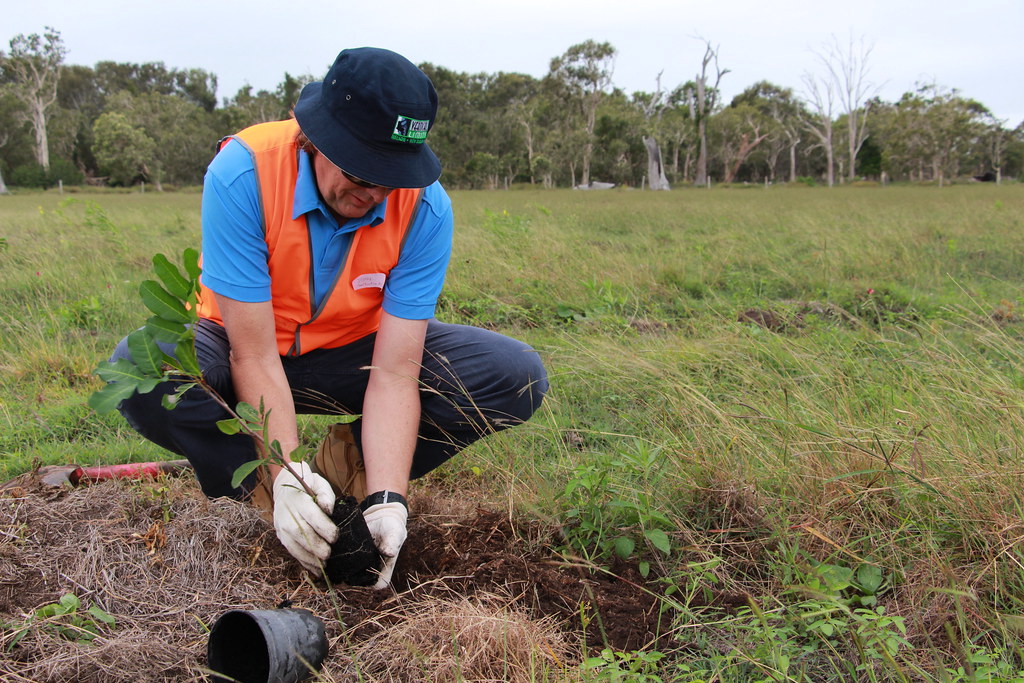三大環境組織——國際鳥盟(BirdLife International)、野生動物保護協會(Wildlife Conservation Society)和世界自然基金會(WWF),發起前所未有的25年植樹和復育計畫:「兆樹計畫」。
他們指出,自人類文明開始以來,地球上原有的6兆棵樹木消失大約一半。剩下的大部分森林則被工業規模的人類活動所破壞。然而,這些僅存森林仍然擁有超過45%的陸地碳,棲息2/3的陸生動植物,並支持16億人的生計。這三大環境組織表示,要逆轉全球樹木覆蓋率下降的趨勢,需要1兆棵新樹。

他們的願景是,透過社會各界合作,在本世紀中葉前種下1兆棵樹木,2050年起不再有伐林活動,失去森林的地區將樹木種回,大面積的現有樹木得到更好的保護。
地球每年損失100億棵樹
兆樹計畫由英國環境組織「Restore UK」發起。Restore UK成立於2001年,是投資保護和復育英國自然棲息地的慈善機構。現在他們的目標已經擴展到全世界的環境和生物多樣性。
三大環境組織警告,地球每年損失100億棵樹,對生物多樣性、固碳、地方經濟和人類健康產生廣泛的影響。
兆樹計畫肩負雙重任務——第一是驅動大規模的投資,對最岌岌可危的景觀加以保護、復育和重新種植樹木;第二是鼓勵私人和公部門加碼或許下新的森林復育相關承諾。
國際鳥盟執行長祖立塔(Patricia Zurita)說:「計畫的關鍵是如何將對的樹種在對的地方。」「有鑑於負責任的土地利用佔全球氣候解決方案近25%,兆樹計畫將是我們在21世紀最大規模的重要貢獻之一。」祖立塔表示。
從企業社會責任開始 種樹與零毀林並行
兆樹聯盟以巴黎氣候協定、紐約森林宣言和聯合國生物多樣性公約為指導原則。其政策目標包括達成「波昂挑戰」的2030年復育3.5億公頃森林、實現生物多樣性公約的「愛知目標」——2020年森林流失量減半,以及「紐約森林宣言」的2030年停止森林砍伐和加強波昂挑戰目標。
組織網路遍佈120多國的兆樹聯盟表示,將為地方打造量身訂做的解決方案,主要從企業社會責任下手。聯盟表示,以企業為主要參與對象的原因是,亞洲、南美洲和撒哈拉以南非洲熱帶森林損失80%與企業供應鏈有關,這些地區是吸收全球溫室氣體最重要的地區。
野生動物保護協會首席保護官羅賓森(John Robinson)說:「許多公司和政府已經瞭解到樹木對人類社會和野生動物的價值,因此許多人承諾採取零毀林政策。」
聚焦棕櫚、大豆、牛肉產地 實現全球森林承諾
這三個組織已經在最首要關注的森林推展植樹活動,尤其是棕櫚、大豆、牛肉和木製品產地的森林。
世界自然基金會英國森林與金融專案經理佩特力(Simon Petley)說:「儘管世界各地都有森林復育計劃和避免森林砍伐的策略,但是這些承諾的落實和融資遠遠跟不上其初心。兆樹計畫將匯集各種企業、非營利和社區利益相關者來幫助實現全球森林承諾,實施有清楚目標的復育計畫,並開啟獲得私人公共資金的機會。」
兆樹計畫已經獲Restore-UK贊助豐厚的種子資金,保護世界上處境最危險的樹木免於繼續消失,並恢復已經消失的重要樹木。
未來幾年,兆樹合作夥伴將擴大這些初始活動,為其他優先領域籌集資金,以解決當地林業及相關社會和經濟問題。
Three of world’s largest conservation organizations – BirdLife International, the Wildlife Conservation Society and WWF – have just launched an unprecedented 25-year tree planting and restoration effort they are calling the Trillion Trees program.
Roughly half of the world’s original six trillion trees have been lost since the beginning of civilization.
Most of the remaining forests have been damaged by industrial-scale human activities. Yet, they still hold more than 45 percent of the terrestrial carbon, are home to two-thirds of all land-based plants and animals, and support the livelihoods of 1.6 billion people.
The partner groups say one trillion is the number of new trees needed to reverse the global decline in tree cover.
Their vision is that by mid-century, through concerted collective action by all sectors of society, one trillion trees have been planted.
By 2050, they envision that deforestation has ended, significant numbers of trees have returned to areas where they were lost and large areas of existing trees are better protected.
Trillion Trees was initiated by Restore UK, established in 2001 as a grant-making charity to invest in the protection and restoration of Britain’s natural habitat. This vision has since expanded to incorporate environmental and biodiversity issues around the world.
The planet is losing 10 billion trees every year, leading to widespread impacts on biodiversity, carbon sequestration, local economies and human health, the groups warn.
The response of the Trillion Trees partnership is twofold: catalyze large-scale investments to protect, restore, and replant trees in the most at-risk landscapes; and inspire greater action under private and public forest commitments.
“It’s about the right trees in the right places,” said Patricia Zurita, CEO of BirdLife International.
“With responsible land use comprising almost 25 percent of the global climate solution, aligning our forest work through Trillion Trees is our contribution to one of the largest societal priorities of the 21st century,” said Zurita.
“Combatting forest loss and increasing forest restoration are central to meeting some of the world’s most important environmental goals,” she said, “and BirdLife is thrilled to be part of this important effort.”
The tree-planting partners are guided by the Paris Climate Agreement, the New York Declaration on Forests, and the UN Convention on Biodiversity.
Their policy goals include the Bonn Challenge to restore 350 million hectares of forests by 2030, the Convention on Biological Diversity’s Aichi Targets, which aim to halve forest loss by 2020, and the New York Declaration on Forests, which aims to end deforestation by 2030 and reinforces the Bonn Challenge restoration goal.
The partner groups, which collectively work in more than 120 countries, say they will create “tailored solutions,” mainly involving “corporate actors.”
Their focus is on corporations because they say corporate commodity supply chains are linked to 80 percent of the loss of tropical forests across Asia, South America, and Sub-Saharan Africa, the very areas that are most crucial to absorbing global greenhouse gases.
Wildlife Conservation Society Chief Conservation Officer John Robinson said, “Many companies and governments already recognize the value that trees hold for human societies and wildlife, which is why so many are committing themselves to zero-deforestation policies.
All three of the groups are already jointly advancing some of these activities in high-priority forests, particularly forests from which palm, soy, beef, and timber products originate.
“Although forest restoration plans and strategies to avoid deforestation exist around the world, on-the-ground implementation and financing of these commitments lag well behind these ambitions,” said Simon Petley, forest and finance program manager, WWF-UK.
“Trillion Trees will help achieve global forest commitments by bringing together a diverse group of corporate, non-profit, and community stakeholders to deliver targeted conservation projects and unlock access to private-public funding,” said Petley.
Trillion Trees has received generous seed funding from UK-based funders Restore-UK to help conserve the world’s most at-risk trees from further loss and restore critical ones that have already disappeared.
In the coming years, the Trillion Trees partners will expand these initial activities and mobilize financing for other priority areas for solutions that account for local forestry and related social and economic issues.
※ 全文及圖片詳見:ENS







